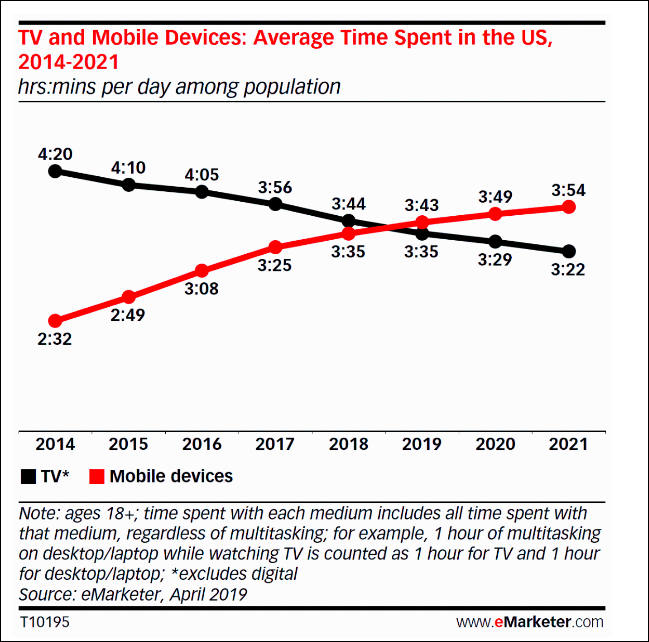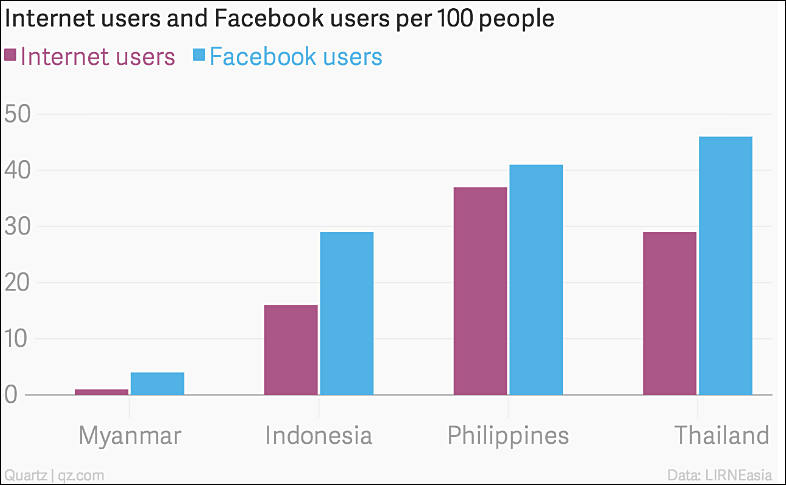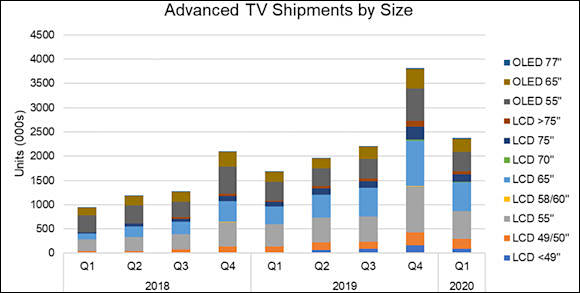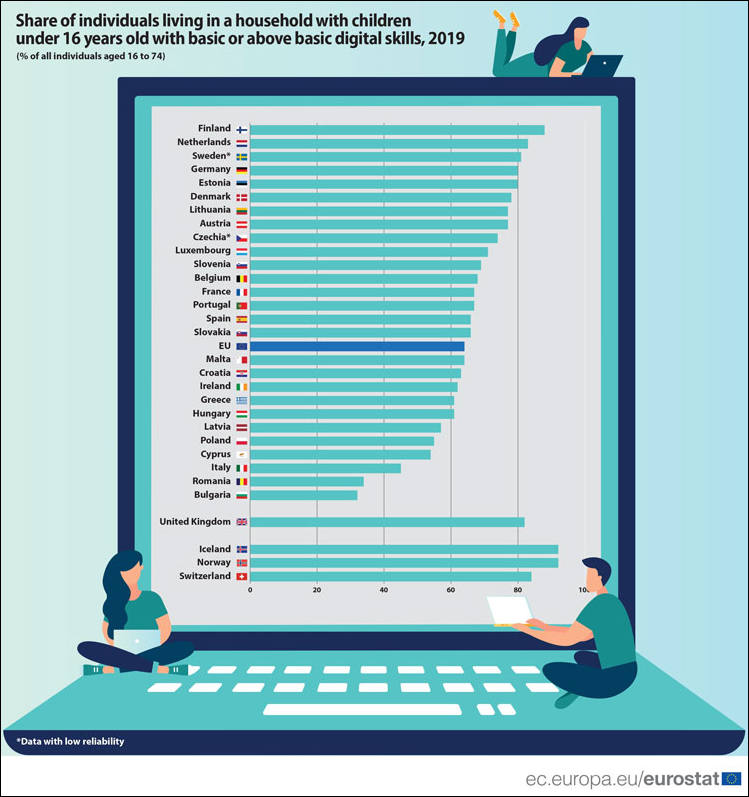
It allows to keep PV going, with more focus towards AI, but keeping be one of the few truly independent places.
-
Mobile voice assistants usage is falling
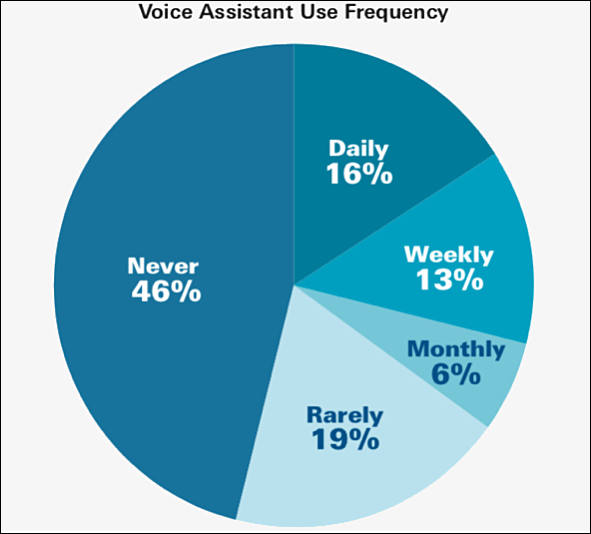
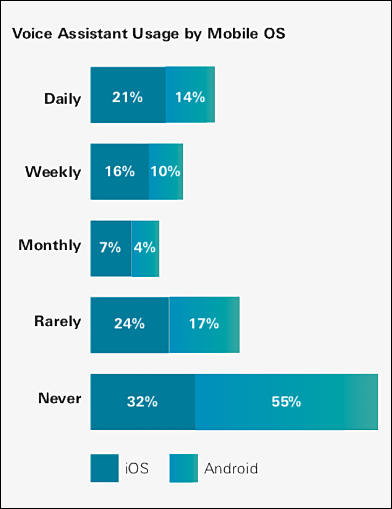

 sa8791.jpg591 x 534 - 31K
sa8791.jpg591 x 534 - 31K
 sa8792.jpg392 x 509 - 24K
sa8792.jpg392 x 509 - 24K -
Smart speakers sales increase fast

Considering the recent "surprise" data that all major manufacturers freely sell and share all your recordings it is really nice trend.
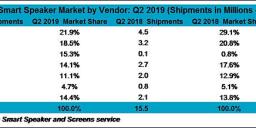
 sa9608.jpg770 x 218 - 39K
sa9608.jpg770 x 218 - 39K -
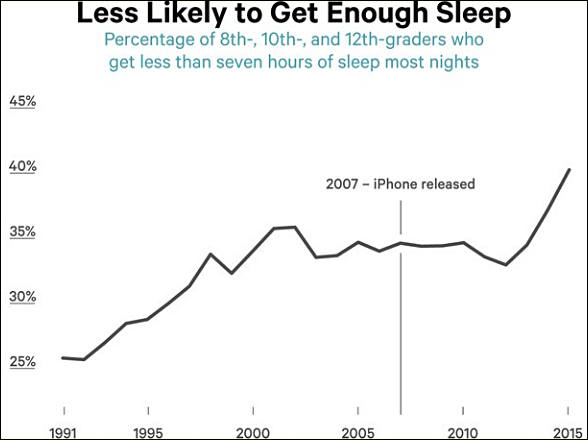
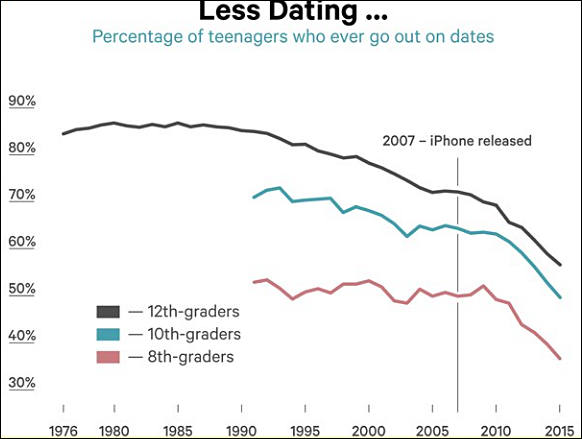
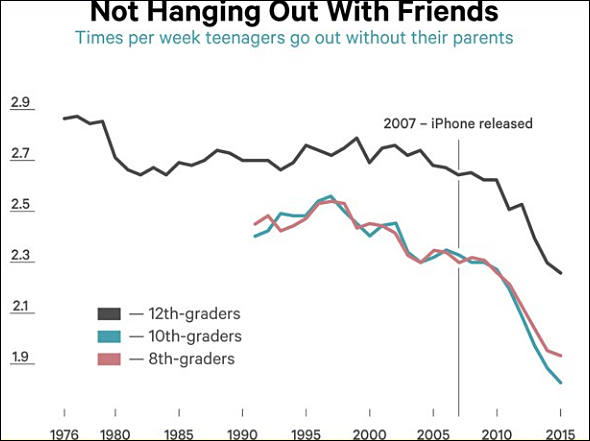

 sa11049.jpg588 x 440 - 27K
sa11049.jpg588 x 440 - 27K
 sa11050.jpg582 x 439 - 30K
sa11050.jpg582 x 439 - 30K
 sa11051.jpg590 x 441 - 31K
sa11051.jpg590 x 441 - 31K -
Question Is screen-based media use associated with differences in the structural integrity of brain white matter tracts that support language and literacy skills in preschool-aged children?
Findings In this cross-sectional study of 47 healthy prekindergarten children, screen use greater than that recommended by the American Academy of Pediatrics guidelines was associated with (1) lower measures of microstructural organization and myelination of brain white matter tracts that support language and emergent literacy skills and (2) corresponding cognitive assessments.
https://jamanetwork.com/journals/jamapediatrics/article-abstract/2754101
-
“The meteoric rise of internet-based activities cannot be understated: between social media, texting, gaming, and surfing the web, the average high school senior spent six hours a day online in 2016 — double the time from a decade earlier. Eighth graders (4 hours a day) and tenth graders (5 hours a day) didn’t lag far behind,” the report finds.
In the early 1990s, a third of 10th graders read the daily newspaper; that number had dropped to just 2% by 2016. What’s more, back in the late 1970s, 60% of 12th graders read a book or magazine almost daily, but just 16% had the same reading habits in 2016.
The study had some other interesting findings. Teen viewership of the boob tube — whether standard TV fare or movies — has plunged as well. “Twenty-two percent of eighth graders reported watching five or more hours of TV a day in the 90s; only 13 percent watched an equivalent amount by 2016.”
Jean M. Twenge, the study’s lead author, said the findings are odd since reading is now so simple. No more schlepping to the library or the book store, just click a link and boom, you’ve got a book to read.
-
Germany
At least one in five students has big trouble reading and understanding even simple texts.
https://www.spiegel.de/lebenundlernen/schule/pisa-studie-nichts-ist-gut-a-1299538.html
-
Things are not improving, quite reverse is happening
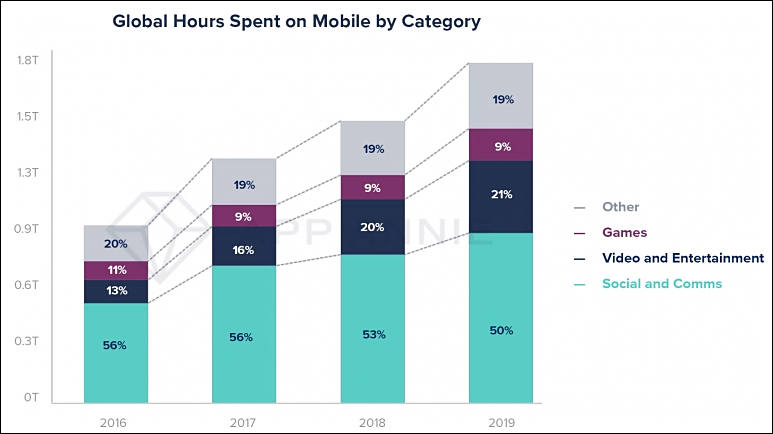
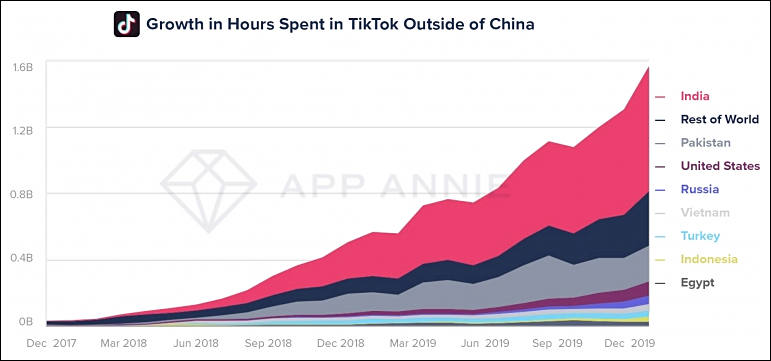

 sa11824.jpg773 x 434 - 36K
sa11824.jpg773 x 434 - 36K
 sa11825.jpg771 x 361 - 32K
sa11825.jpg771 x 361 - 32K -
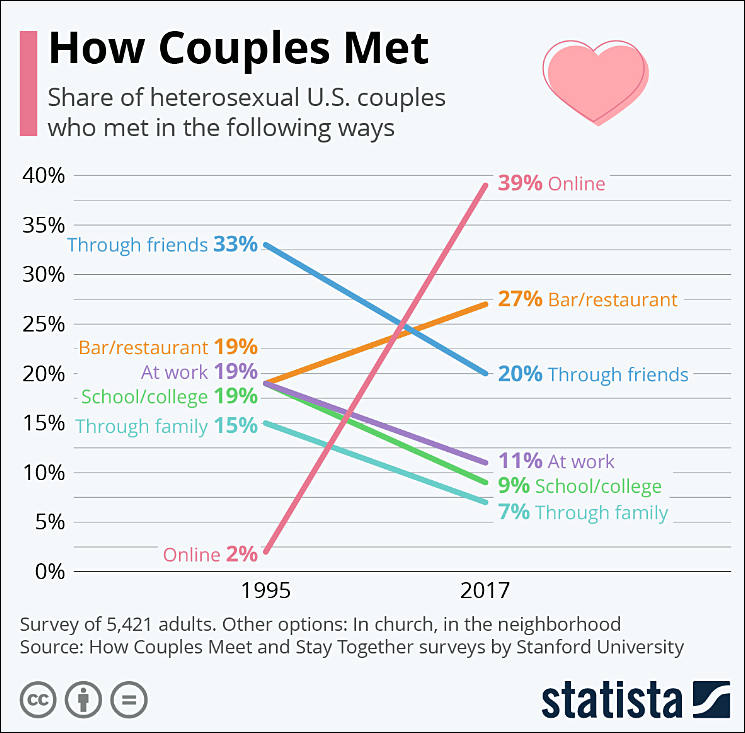
Couples have huge issues now, as online and bar meetings are of very low quality.

 sa12223.jpg745 x 733 - 93K
sa12223.jpg745 x 733 - 93K -
Brands
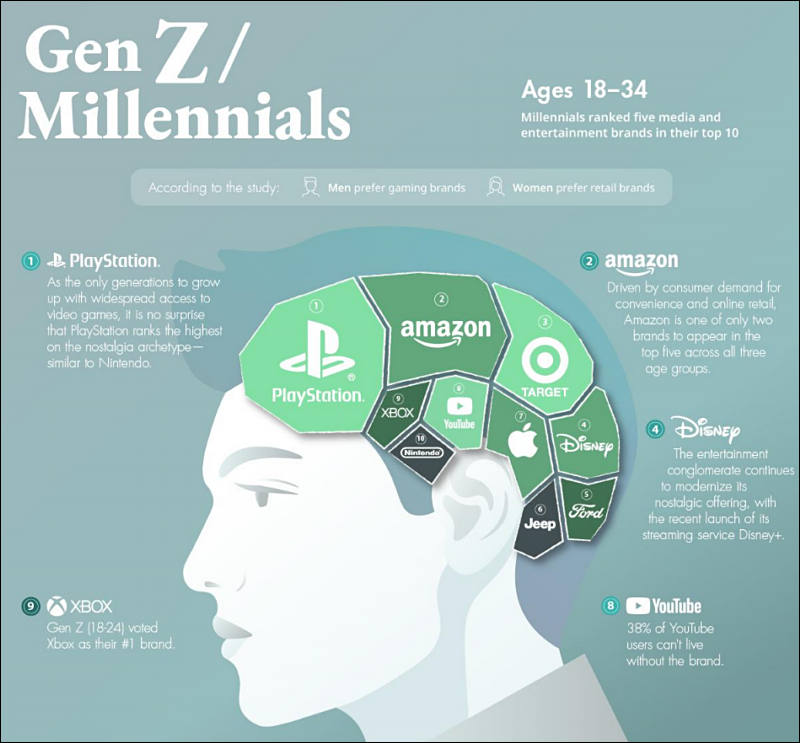
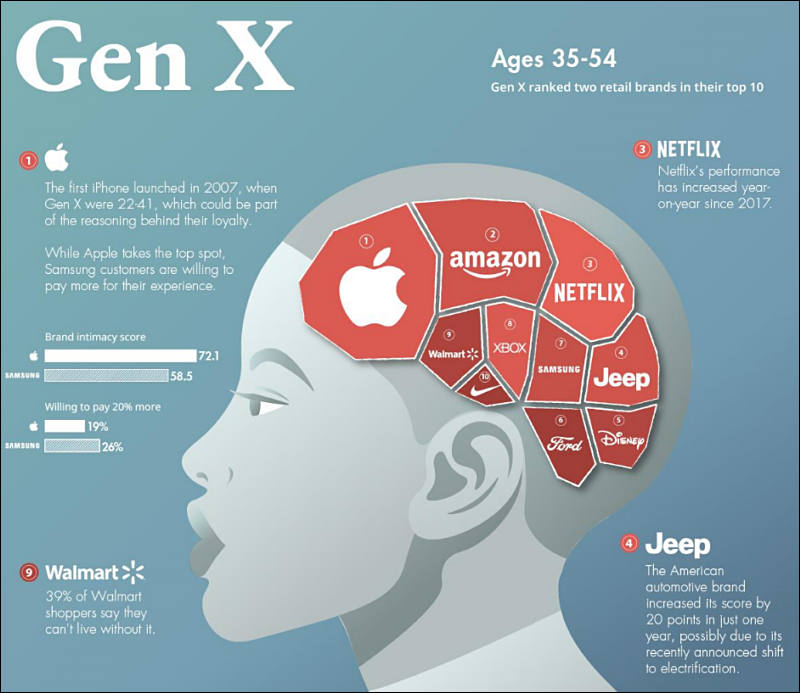
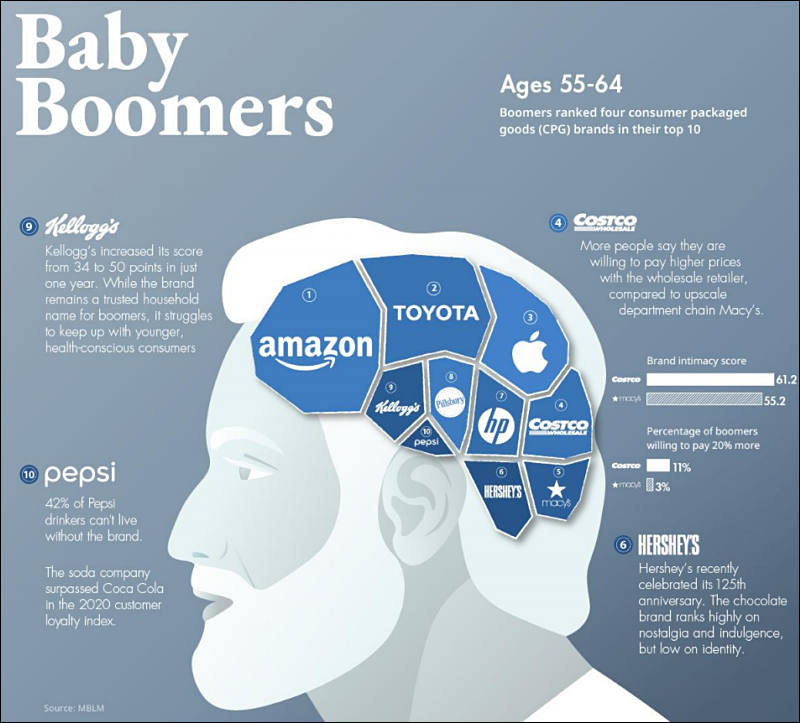

 sa12482.jpg800 x 743 - 67K
sa12482.jpg800 x 743 - 67K
 sa12483.jpg800 x 693 - 70K
sa12483.jpg800 x 693 - 70K
 sa12484.jpg800 x 723 - 76K
sa12484.jpg800 x 723 - 76K -
New Stream records
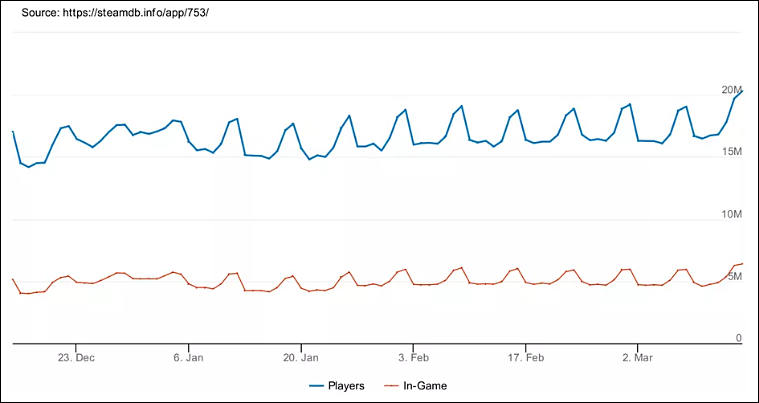
Lot of people are home, shaking from fear and trying to forget nasty reality in games.
But if they don't stop playing games and won't start real fight of their life - it'll all end bad.

 sa12522.jpg759 x 403 - 32K
sa12522.jpg759 x 403 - 32K -
“I have a foreboding of an America in my children’s or grandchildren’s time — when the United States is a service and information economy; when nearly all the manufacturing industries have slipped away to other countries; when awesome technological powers are in the hands of a very few, and no one representing the public interest can even grasp the issues; when the people have lost the ability to set their own agendas or knowledgeably question those in authority; when, clutching our crystals and nervously consulting our horoscopes, our critical faculties in decline, unable to distinguish between what feels good and what’s true, we slide, almost without noticing, back into superstition and darkness…
The dumbing down of American is most evident in the slow decay of substantive content in the enormously influential media, the 30 second sound bites (now down to 10 seconds or less), lowest common denominator programming, credulous presentations on pseudoscience and superstition, but especially a kind of celebration of ignorance”
Carl Sagan, 1995
-
While the television industry as a whole saw a 20 percent increase last week compared to the month prior, HBO Now saw the highest usage on its platform since summer. The percentage of people binge viewing series has increased 65 percent, while movie watching is up 70 percent on HBO Now.
Amazon’s other streaming platform, Twitch, has seen a 31 percent growth in viewership, with total amount of hours watched jumping from 33 million on March 8th to 43 million on March 22nd.
It is bad. More people dumbing down themselves.
-
If excessive media consumption is result of having “nothing better to do” as teenagers, it seems kind of inexplicable for adults. Once work takes up most of our time, we have a lot of better things to tend to. In theory, that is.
But somehow, the habit has taken hold. To quote Samuel Johnson, “the chains of habit are too weak to be felt until they are too strong to be broken.”
The truth is the moment we sit down on the couch and start watching, we’ve long accepted that none of the things we just planned will ever happen. We don’t need to “recharge.” We need to escape from the fact that we’ve become someone who accepts defeat before we even put up a fight.
https://medium.com/better-humans/how-to-stop-binge-watching-from-ruining-your-life-cd0e92f51750
-
RADIO PROGRAM : (53:58) Also on Itunes Podcast
Free will under threat: How humans are at risk of becoming wards of technologists Part One.
"We're not interested in the engineering of intelligent machines. We're interested in the engineering of unintelligent humans," Brett Frischmann writes in Re-engineering Humanity, a book co-authored with philosopher Evan Selinger.Frischmann, who is an American legal scholar, says our increasing dependence on technology is putting our very humanity at risk. He warns humans are heading down an ill-advised path that is making us behave like "perfectly predictable and in some cases programmable" simple machines."We follow scripts written, and paths, set by platform designers….We outsource thinking of all sorts, I mean route planning, who to date, what to say, what to think, what to believe." -
It is all bad
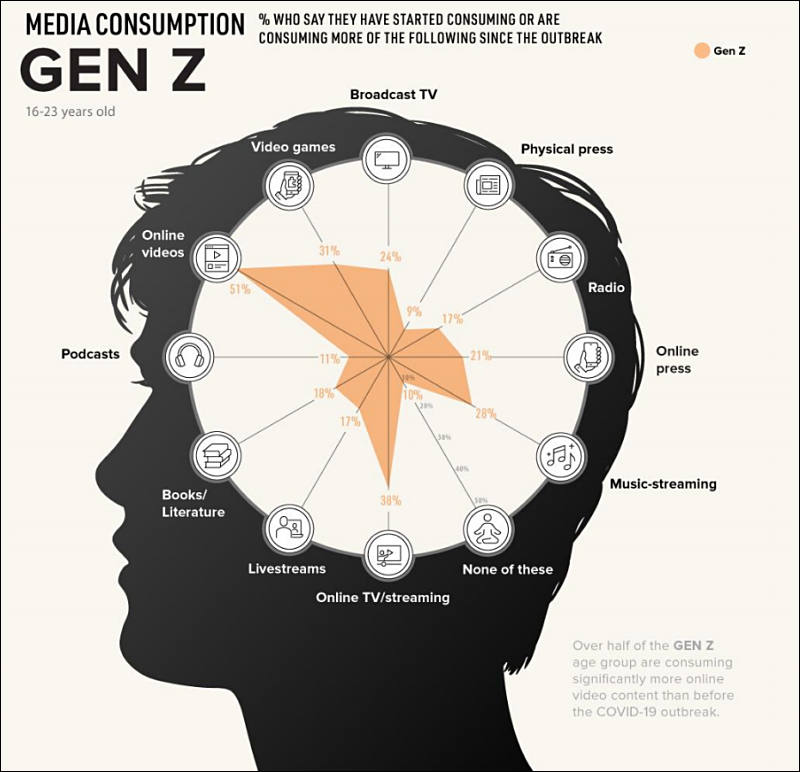
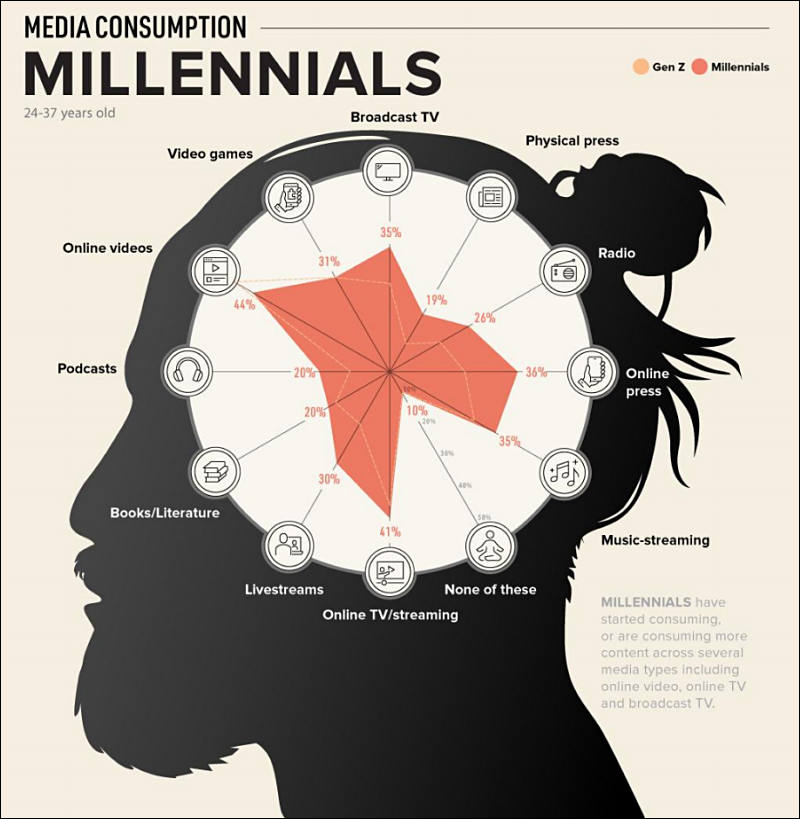
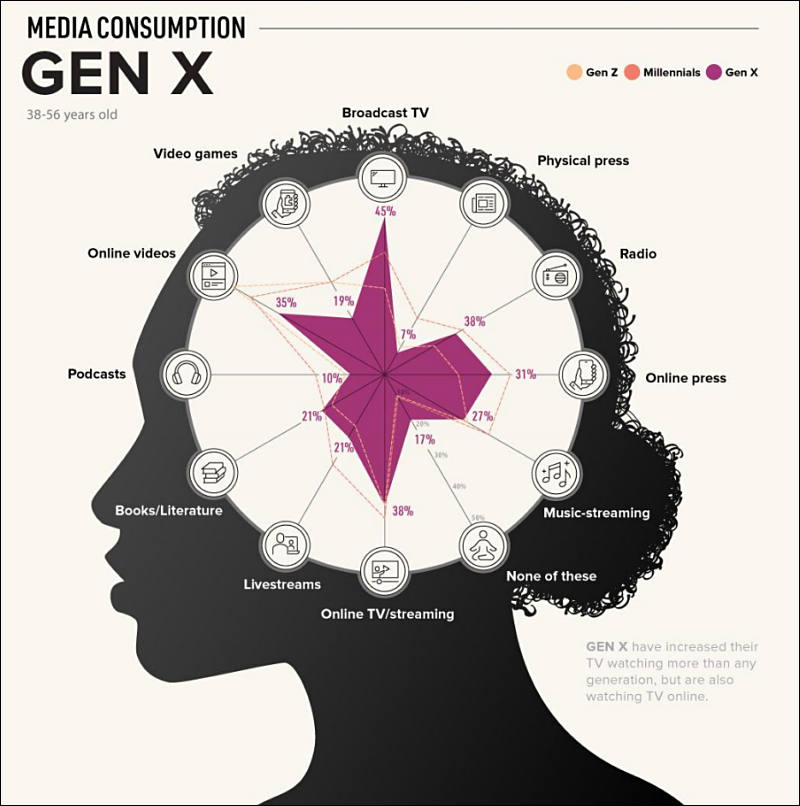
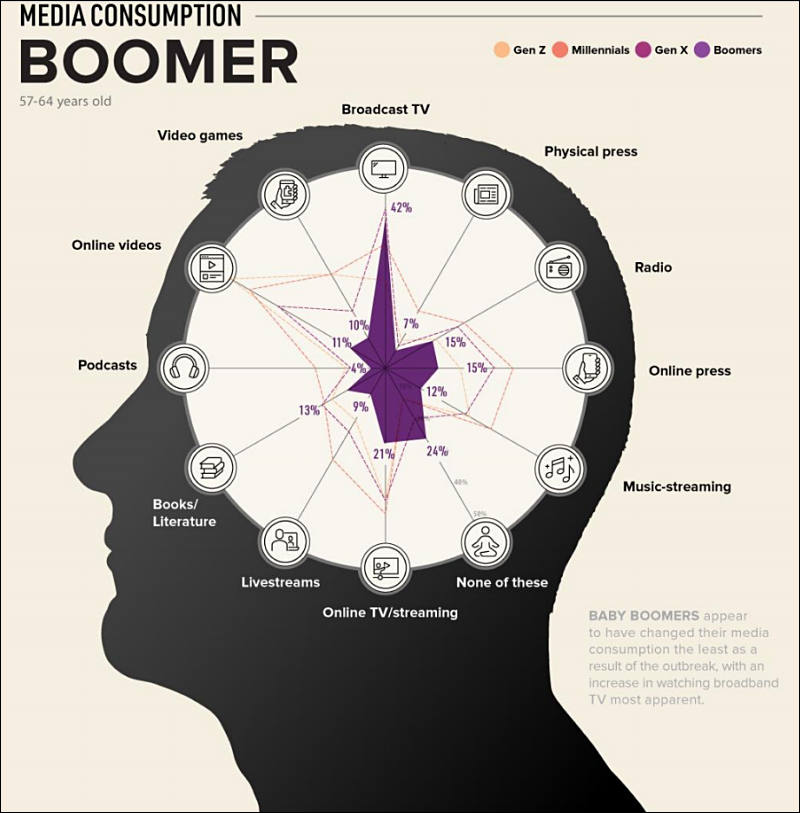

 sa12840.jpg800 x 772 - 71K
sa12840.jpg800 x 772 - 71K
 sa12841.jpg800 x 819 - 77K
sa12841.jpg800 x 819 - 77K
 sa12842.jpg800 x 806 - 75K
sa12842.jpg800 x 806 - 75K
 sa12843.jpg800 x 813 - 75K
sa12843.jpg800 x 813 - 75K -
A controversial new study is suggesting a link between a baby’s exposure to screens at the age of 12 months and the development of autism spectrum disorder (ASD)-like symptoms later in childhood. Experts not affiliated with the study have criticized the research, calling it “fatally flawed”, “misleading”, and potentially “harmful”.
Can be very harmful for big info companies, of course.
The study investigated data from the National Children’s Study (NCS), a multi-center epidemiological project examining the relationship between child development and environmental influences. A cohort of 2,152 children was investigated.
The new research found those children who watched TV or DVDs at 12 months of age were 4.2 percent more likely to present with ASD-like symptoms at 24 months. Conversely, the study examined rates of daily play and found children who played with parents daily were 8.9 percent less likely to develop ASD-like symptoms at 24 months compared to those children playing with parents less than daily.
No surprise, but companies hate such findings.
-
Mr. Langlois is on a fixed income. To qualify for Element Care, a nonprofit health care program for older adults that brought him Sox, a patient’s countable assets must not be greater than $2,000.
Such programs are proliferating. And not just for the elderly.
Life for anyone but the very rich — the physical experience of learning, living and dying — is increasingly mediated by screens.
Not only are screens themselves cheap to make, but they also make things cheaper. Any place that can fit a screen in (classrooms, hospitals, airports, restaurants) can cut costs. And any activity that can happen on a screen becomes cheaper. The texture of life, the tactile experience, is becoming smooth glass.
The rich do not live like this. The rich have grown afraid of screens. They want their children to play with blocks, and tech-free private schools are booming. Humans are more expensive, and rich people are willing and able to pay for them. Conspicuous human interaction — living without a phone for a day, quitting social networks and not answering email — has become a status symbol.
All of this has led to a curious new reality: Human contact is becoming a luxury good.
https://l.facebook.com/l.php?u=https%3A%2F%2Fwww.nytimes.com%2F2019%2F03%2F23%2Fsunday-review%2Fhuman-contact-luxury-screens.html%3Ffbclid%3DIwAR26DzvTIdZgyg5lbG5LEMCmwipWnZyUj0hOsfBVRMXpbBly9GDg3k0eU4E&h=AT129Z2Mc-djHkJfbXxAfMkTwElFJrzukkoj8Ku_V55g50OoHyxwEx-Uy7QjM61yjdSnKV6HkvfLUJ6-eR_RIm9OiwInKAlVDB0wfhwQcJWXFzJFMLjkv89y1HkilOvfkk-G&tn=-UK*F&c%5B0%5D=AT1tBqAYaJb27Xc8xiftx-0SvVXDYPy6RIunZoRfSstWDYqiIRNLQ_UW8X_FIBYE_GEMZpnUJyePTO6dAx0CK4Swj_GEUTwBt3J9ZofgyjAtbsuglcgJULQmaiTZgX0NFDvN7_1a2p7hIUXuvGXvnVSPvYLGsmBYN82_RL36AeP0ihQ9lsdK2184Cdlp9W_sNDa0EHVTRn1EBvbH27E
-
People spending time most inefficiently now
According to StreamElements and Arsenal.gg, the live-streaming sector grew a full 45 percent between March and April; year over year, the industry is up by 99 percent.
Twitch — the biggest live-streaming platform — saw the most growth in terms of sheer hours, with its hours watched jumping 50 percent between March and April and a full 101 percent year over year. It’s now up to 1.645 billion hours watched per month.
Now imagine all this hours spent even on just understaning how stuff works, how economy works and so on.
But ruling class doing everything to prevent you to do so, including direct financing of all streaming platforms expenses.
-
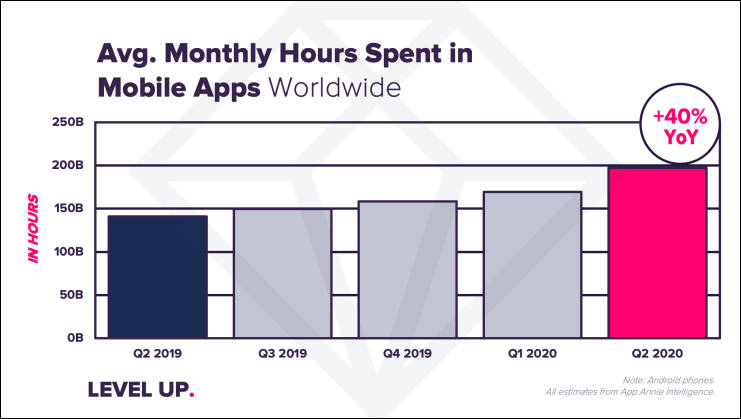
Main reason is that leading media induced huge damege by telling people notto buy stationary PC, so people sat at home looking in their tiny phones. But things reversed and leading info agencies now have meetings on how to present issues with smartphones spending and why so many people are no longer want to buy one.

 sa13728.jpg741 x 419 - 42K
sa13728.jpg741 x 419 - 42K
Howdy, Stranger!
It looks like you're new here. If you want to get involved, click one of these buttons!
Categories
- Topics List23,993
- Blog5,725
- General and News1,354
- Hacks and Patches1,153
- ↳ Top Settings33
- ↳ Beginners256
- ↳ Archives402
- ↳ Hacks News and Development56
- Cameras2,368
- ↳ Panasonic995
- ↳ Canon118
- ↳ Sony156
- ↳ Nikon96
- ↳ Pentax and Samsung70
- ↳ Olympus and Fujifilm102
- ↳ Compacts and Camcorders300
- ↳ Smartphones for video97
- ↳ Pro Video Cameras191
- ↳ BlackMagic and other raw cameras116
- Skill1,960
- ↳ Business and distribution66
- ↳ Preparation, scripts and legal38
- ↳ Art149
- ↳ Import, Convert, Exporting291
- ↳ Editors191
- ↳ Effects and stunts115
- ↳ Color grading197
- ↳ Sound and Music280
- ↳ Lighting96
- ↳ Software and storage tips266
- Gear5,420
- ↳ Filters, Adapters, Matte boxes344
- ↳ Lenses1,582
- ↳ Follow focus and gears93
- ↳ Sound499
- ↳ Lighting gear314
- ↳ Camera movement230
- ↳ Gimbals and copters302
- ↳ Rigs and related stuff273
- ↳ Power solutions83
- ↳ Monitors and viewfinders340
- ↳ Tripods and fluid heads139
- ↳ Storage286
- ↳ Computers and studio gear560
- ↳ VR and 3D248
- Showcase1,859
- Marketplace2,834
- Offtopic1,320


